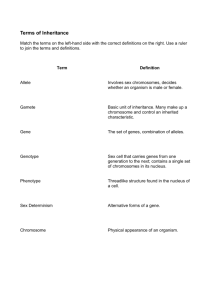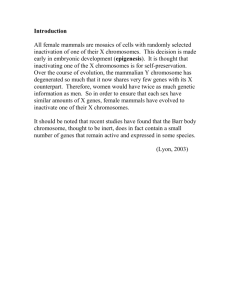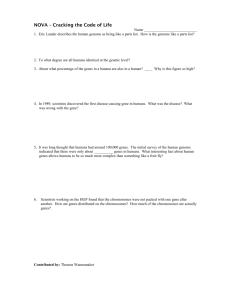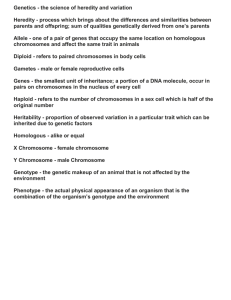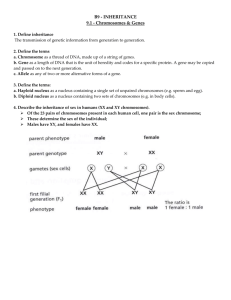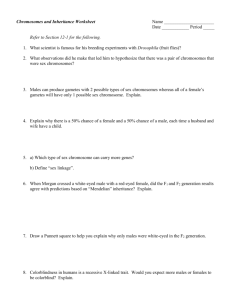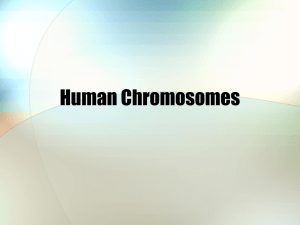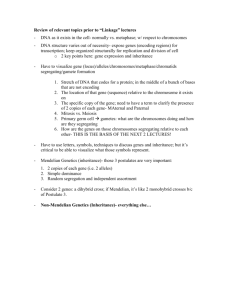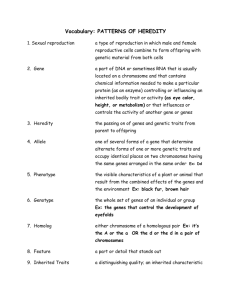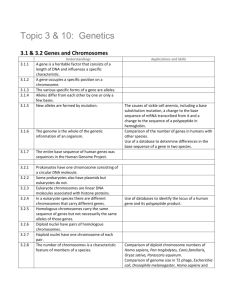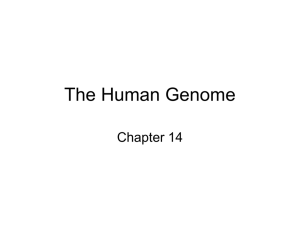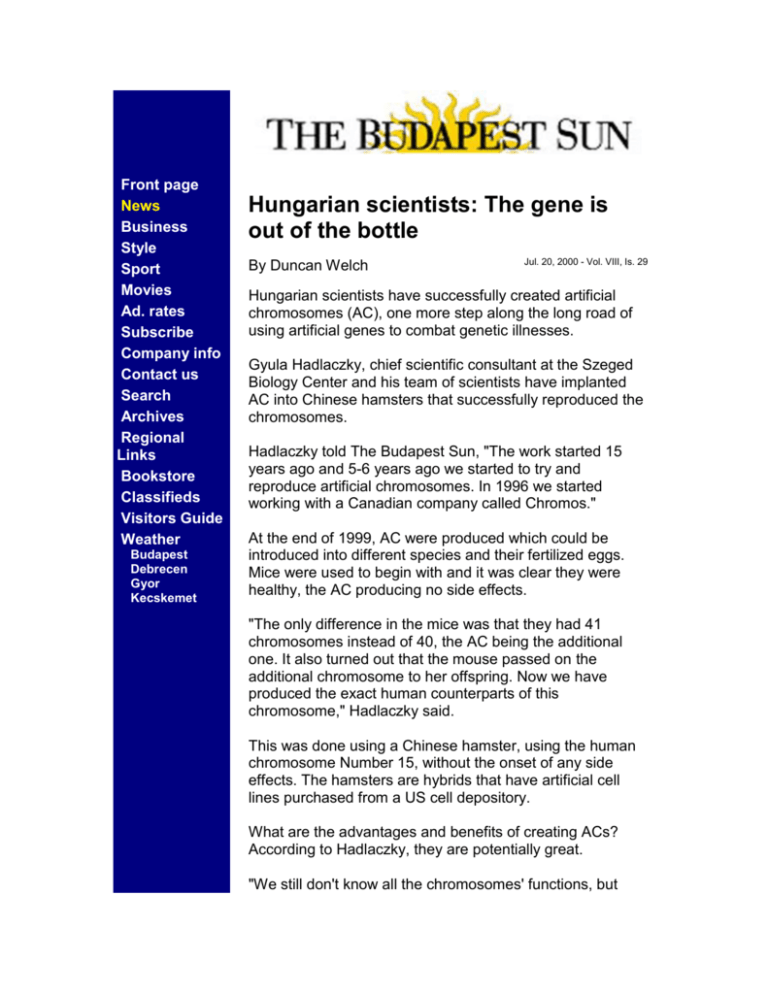
Front page
News
Business
Style
Sport
Movies
Ad. rates
Subscribe
Company info
Contact us
Search
Archives
Regional
Links
Bookstore
Classifieds
Visitors Guide
Weather
Budapest
Debrecen
Gyor
Kecskemet
Hungarian scientists: The gene is
out of the bottle
By Duncan Welch
Jul. 20, 2000 - Vol. VIII, Is. 29
Hungarian scientists have successfully created artificial
chromosomes (AC), one more step along the long road of
using artificial genes to combat genetic illnesses.
Gyula Hadlaczky, chief scientific consultant at the Szeged
Biology Center and his team of scientists have implanted
AC into Chinese hamsters that successfully reproduced the
chromosomes.
Hadlaczky told The Budapest Sun, "The work started 15
years ago and 5-6 years ago we started to try and
reproduce artificial chromosomes. In 1996 we started
working with a Canadian company called Chromos."
At the end of 1999, AC were produced which could be
introduced into different species and their fertilized eggs.
Mice were used to begin with and it was clear they were
healthy, the AC producing no side effects.
"The only difference in the mice was that they had 41
chromosomes instead of 40, the AC being the additional
one. It also turned out that the mouse passed on the
additional chromosome to her offspring. Now we have
produced the exact human counterparts of this
chromosome," Hadlaczky said.
This was done using a Chinese hamster, using the human
chromosome Number 15, without the onset of any side
effects. The hamsters are hybrids that have artificial cell
lines purchased from a US cell depository.
What are the advantages and benefits of creating ACs?
According to Hadlaczky, they are potentially great.
"We still don't know all the chromosomes' functions, but
hope this will give an insight into structure and function. AC
could well become useful in gene therapy. AC could carry
therapeutic genes into target cells, and is very closely
connected to the recent Human Genome project."
With the human genome illustrating what genes are
responsible for disease, AC could be used as a vehicle to
transfer genes to diseased cells.
István Rasko, director of the Institute of Genetics, told the
press that AC can aid in the treatment of genetic diseases
where poorly operating genes can be replaced with more
efficient and healthier ones, calling the discovery "a global
sensation".
Although Hadlaczky is equally enthusiastic he does caution
that, as with most scientific discoveries, more scientific
work is required."I like to say that we have a 'possibility' of
success, but time will tell," said an enthused Hadlaczky.
While AC have been shown not to cause negative side
effects, the challenge will be to see how efficiently they
transfer genes to target cells.
Hadlaczky and his colleagues are aware of the difficulties
ahead but are determined to realize their dreams of AC
being used for therapeutic gene treatment and in the
process continuing Hungarians contribution to genetic
discoveries.
Send this story to a friend
Copyright 2000 * The Budapest Sun * All rights reserved

